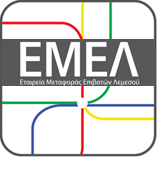Finally, Limassol is joining a list of pretty much every city on this planet that has a system of public transportation! Lots of new buses, new routes, new tickets, new passengers – all that is exciting. I’ve been waiting for this and now I’m happy to see how it grows and improves. From a myth of bus system, it turned into a real bus network. It’s true that not everything is covered yet, and that most people still prefer to drive their own cars, but I see light in the end of the tunnel. I’m full of hope. And I say – just give it time. And we’ll have an alternative to personal cars and expensive taxis.
 I have tried the new bus system myself. Together with my son Maxim we took a test ride to grandma’s and back. The funny bit was when were heading back home, we had a choice of either going back by bus or getting a lift by my brother. When presented with these options, Maxim chose a bus. And I don’t see why not. The buses are new and comfortable. We already paid for a daily ticket. There is practically no waiting time. And it’s all exciting and new.
I have tried the new bus system myself. Together with my son Maxim we took a test ride to grandma’s and back. The funny bit was when were heading back home, we had a choice of either going back by bus or getting a lift by my brother. When presented with these options, Maxim chose a bus. And I don’t see why not. The buses are new and comfortable. We already paid for a daily ticket. There is practically no waiting time. And it’s all exciting and new.
The only issue I noticed with the new system is that nobody knows which routes are there, where buses stop, and how often they go. Except for route 30, which goes along the seaside from La Meridian Hotel to the New Port of Limassol and back. Gladly, there is a website now that solves the problem with detailed information on all routes, bus stops, timetables, ticket prices, and more – LimassolBuses.com . Not only the website is in both Greek and English, but it’s a nice showcase of how WordPress can be used for a non-blog.
